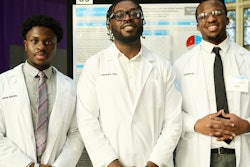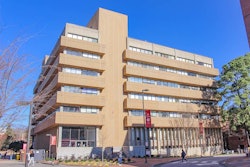BIRMINGHAM, Ala.
The University of Alabama at Birmingham will use a $28 million grant to try to determine why Blacks and Southerners suffer and die from strokes at a higher rate than the rest of the country. Nationally, Blacks are about 40 percent more likely to die of a stroke than Whites are, said Dr. George Howard, the primary researcher for the study whose funding was announced last month.
“More disturbing, research indicates younger African Americans, ages 35 to 54, bear most of the excess burden,” Howard says. “They are four times more likely to die of stroke than any other race or age group. We need to know why.”
Researchers also will examine the eight-state “stroke belt” — North Carolina, South Carolina, Georgia, Tennessee, Alabama, Mississippi, Arkansas and Louisiana — where the stroke death rate is 50 percent higher than the national average. About 9,000 more strokes annually happen in the stroke belt than across the rest of the country. Even more startling is the “stroke buckle” — the coastal plains of Georgia and the Carolinas — where the stroke death rate is twice the national average.
“The estimated economic impact of these ‘extra’ deaths is staggering — nearly $1 billion a year,” Howard says. Each incident of stroke costs about $104,000, he said.
The five-year grant from the National Institute of Neurological Disorders and Stroke will enable UAB to complete one of the country’s largest stroke and stroke death studies. Researchers say it’s not known how many Americans die from stroke each year — the estimate is more than 750,000 — or why strokes are so common in the South.
There are many theories about the region’s higher stroke death rate, including high levels of risk factors such as high blood pressure and diabetes, differences in the way states filter their drinking water and people’s eating and exercise habits.
UAB researchers will recruit a pool of 30,000 people age 55 and older from across the country for the study — half from the stroke belt, half from outside it — said Dr. LeaVonne Pulley, who will direct the recruiting for the study. Pulley said half the 30,000 will be Black.
“The study will include the largest number of African Americans ever enlisted in a stroke study,” Pulley says.
Researchers will check up on the participants’ health every six months, with the expectation that 800 of the 30,000 will die from strokes during the five-year period, UAB spokeswoman Joy Carter said. The $28 million grant is the largest ever awarded to UAB for a single five-year study.
© Copyright 2005 by DiverseEducation.com


















